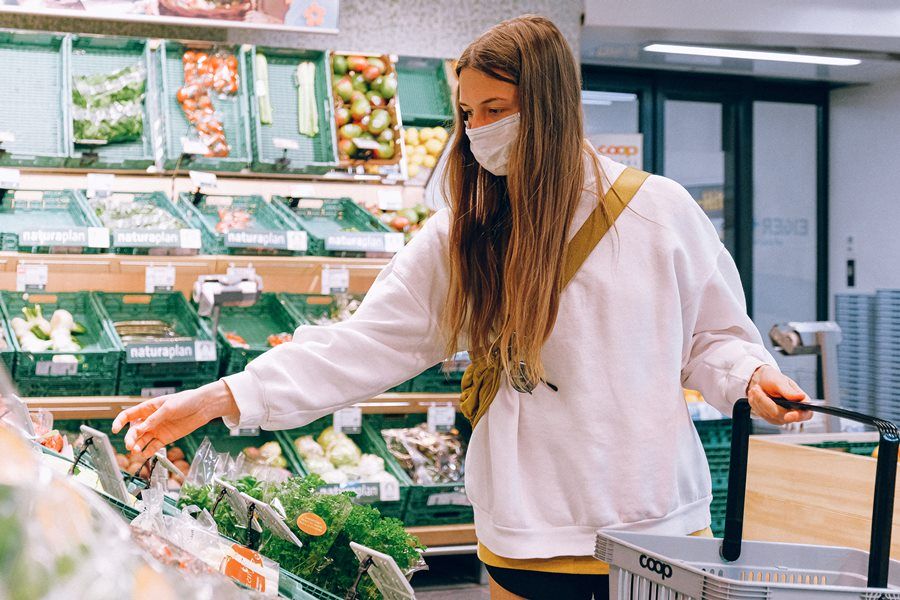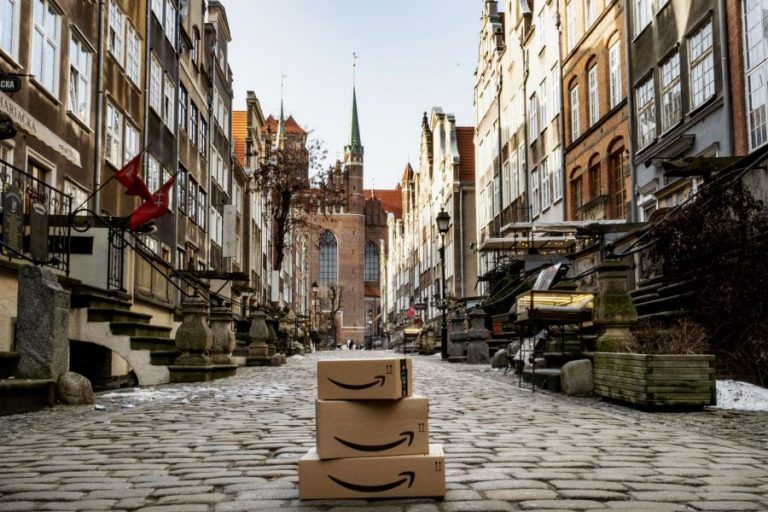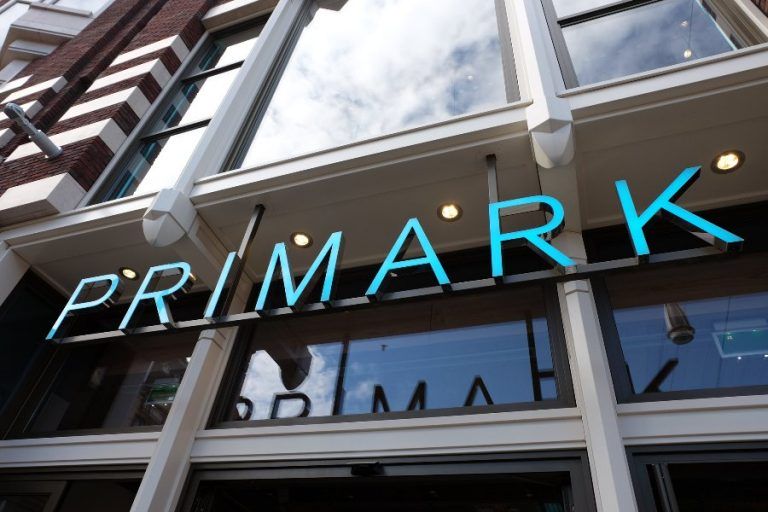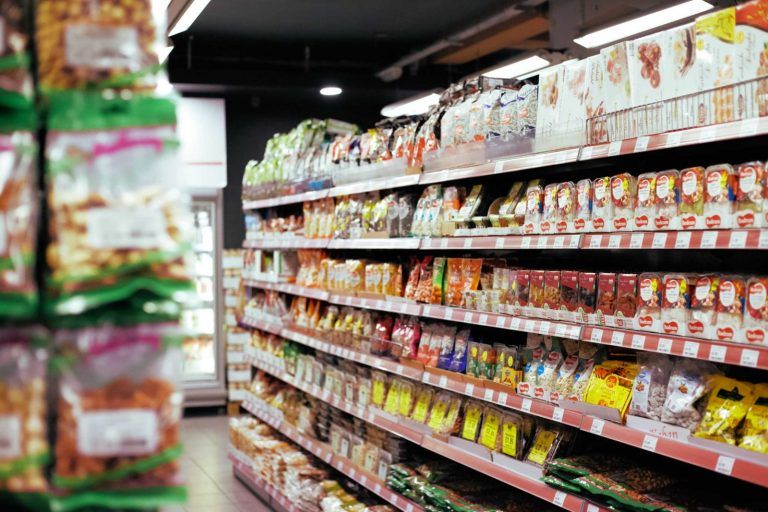PMR: 5 key trends that shaped grocery retail in Poland in 2020

Wpis dostępny jest także w języku:
![]() polski
polski
The grocery market has not suffered from the coronavirus the way other parts of Polish retail have – we forecast that it will still grow by about 2% in 2020. But the pandemic’s impact on the industry has nevertheless been huge. Of the five trends that (in our view) defined the year in grocery retail, most were caused or accelerated by Covid-19. Some of the changes are set to outlast the pandemic.
Online shopping takes off
Covid-19 has given a boost to online shopping in all sectors of Polish retail. But nowhere have e-commerce’s gains been as spectacular as in grocery, especially when it comes to first-time users.
Partly that’s because when the pandemic struck, online grocery was still at a very early stage of development in Poland. (It did not help that grocery chains that had invested the most in online, Alma, Piotr i Pawel and Tesco, all run into major problems in the last several years, ending in bankruptcy in the case of Alma.) The other thing, of course, is that groceries are staples: people need to buy them regularly, pandemic or not. Advised to stay at home as much as possible, and facing restrictions on customer numbers in stores, Poles turned to the internet to buy food in unprecedented numbers. In April, 25% of respondents in a PMR survey said they had bought food online in the three weeks prior to being interviewed, including 7% for the first time in their lives.
Importantly, grocery chains moved fast to meet the jump in demand. Hardly a week went by in 2020 without reports of grocers launching or ramping up e-commerce. There was a veritable explosion of click & collect services. For retailers, they offered a good way to start with online shopping, or to extend it to new cities quickly. And they proved popular with customers, combining safety, speed, and affordability. Some grocers also invested in deliveries. More partnered with delivery apps. The year 2020 brought information about new e-commerce activities of retail chains every month.
The click & collect services have been introduced, among others, in different territorial ranges and for different number of products, Auchan, Carrefour, Delikatesy Centrum or Zabka. There were also networks that developed the delivery of products to the customer’s doorstep, although development in this direction is not yet widespread. In October, Carrefour extended the reach of the e-shop to Myslowice and Bytom, and home deliveries were launched by Stokrotka. In another important development, Frisco.pl, the largest pure-play online grocer, expanded beyond Warsaw for the first time, its decision to launch in Wroclaw accelerated by Covid-19.
(Read our more detailed analysis of developments in the online grocery market in 2020 here).
Shift in format mix continues
2020 saw continuation of the changes in store format mix observed in previous years, fuelled by growing competition and by new consumer habits, some of which were heightened further by the pandemic. Formats such as convenience stores, proximity supermarkets, modern-type discount stores, and petrol station stores remained in the ascendancy. Zabka, the largest convenience store chain, has expanded fast in the pandemic. So has Dino, the proximity supermarket. And so have the discounters, led by Lidl.
Carrefour continued its strong push into petrol station stores in 2020. By December it already had 80 such stores, and looks set to surpass the 100 mark in 2021. Auchan announced a strategic partnership with BP in November under which it will open a new store format called Easy Auchan at BP’s petrol stations.
Carrefour also continued to invest in its innovative formats in 2020. It accelerated the rollout of Supeco, which combines a discount store and a cash&carry warehouse; and moved ahead with Carrefour Bio, the organic store.
In an intriguing development, Mere, a Russian hard discounter, opened its first store in Poland in 2020. It will be interesting to see how it does here, because its format is a complete opposite of where the country’s incumbent discounters have been moving in recent years (i.e., more fresh and deli products, increasingly sold from service counters; more ready meals and healthy foods, etc.). Mere aims for 100 stores in Poland, but for the moment it has just the one, in Czestochowa, with plans for a second one in Radom.
Shopping more locally & in bigger quantities
Since the coronavirus outbreak, Poles have been shopping for groceries more locally. In a survey of about 350 owners of small local stores for Eurocash, fully 70% said sales had risen in the pandemic. In a consumer survey carried out by PMR during the first lockdown, 37% of respondents said they were avoiding large grocery stores, and 28% said they used small local grocery stores more than before.
People are generally shopping less often, but buying more when they do. In the same PMR survey, 53% said they bought more food than they immediately needed. In November – the latest month for which data are available – the number of transactions at small grocery stores was down 18%, year on year, but the average transaction value was up 20%, and the number of items per transaction was up 12%, according to the Polish Trade Chamber (PIH).
More than half of Poles in the PMR survey stated that they were/were trying to pay non-cash (58%). This was influenced, among others, by the government’s encouragement of non-cash payments (due to the suspicion of the possibility of contracting contagion through contact with banknotes and coins). In addition, the limit for transactions not requiring the use of a PIN code was raised from PLN 50 to PLN 100. Safety concerns related to Covid-19 also helped drive use of self-checkout and contactless payment in stores.
The quarantine increased the return to cooking and baking bread in many homes. This peculiar return to the roots will not last forever, of course, but the majority of people who have proven themselves and liked cooking will be less willing to use catering services. What is more, the regulars of restaurants and cafés are currently observing an increase in savings, which may also delay the jumping return of customers to catering.
Rise in at-home cooking and dining
The pandemic kept restaurants in Poland closed for dine-in services for more than four months in 2020; and it kept many people at home – working remotely or caring for their families – for much of the year. This significantly affected the way Poles purchased, prepared and consumed their meals. It caused a renaissance of at-home cooking and baking. Grocery stores were a key retail destination for ingredients.
And it meant a jump in at-home dining, driving increased demand, not just for delivery meals from restaurants but also for ready-to-eat meals you can buy close to home. Grocers reacted quickly, expanding their offerings in this category, including under their own brands.
Thus, Zabka broadened its bistro menu, Zabka Café – which already included hot-dogs, hot sandwiches and coffee – to include cheeseburgers in May. In the first month alone, it sold more than a million of them. It also ramped up its own-brand lines of prepared meals, Dobra Karma and Szamamm, which can substitute for a delivery lunch; and it has been piloting a line of restaurant-grade meals under Le’Frog brand.
Biedronka launched a new line of ready meals in jars in May, called Jalowiec, which includes e.g. golabki (cabbage rolls), flaki (traditional Polish meat stew), meatballs, or baked beans. Also in May, Carrefour introduced Bon Apetit, with 70 SKUs of ready meals, meal kits, soups, salads in cups, juices and drinks.
Eurocash signed an agreement in November with Sphinx, the largest casual dining chain in Poland, to distribute ready meals that the restaurant will produce under its own brand in its stores.
Eco-friendly stores, eco-minded consumers
Ecology, in its various aspects, remained a strong trend in 2020, both in terms of consumer behaviour and retailer actions. It manifested itself e.g. in rising popularity of organic and vegetarian food, reduced use of plastics, or deployment of sustainable solutions in stores.
Grocers have been working to make their own-brand packaging more sustainable. Kaufland aims to make 100% of its private label packaging recyclable by 2025. The Polish unit of Lidl wants to cut plastics in its packaging by 20%. Carrefour has pledged to reduce by 5% the total amount of packaging for its private label products by 2022, and to use 100% reusable, recyclable or compostable packaging for own brands by 2025. And it has been encouraging the use of own containers by shoppers. In 2020, it introduced refill stations for cosmetics and household chemicals in its Carrefour BIO stores in collaboration with Polish brand Yope, for example. Customers can bring their own containers to fill up on things like shower gel, soap, or lotion, thus helping reduce plastic waste.
2020 also saw the launch of a major collaborative effort involving different retailers. Carrefour, Biedronka, Kaufland, and Lidl Polska were among 12 companies that in September announced the Polish Plastics Pact, an initiative to work towards a circular economy for plastics. Some of the targets that the signatories aim to achieve by 2025 include: eliminating unnecessary and problematic plastic packaging through redesign and innovation; reducing the use of primary plastics in packaging by 30%; and ensuring that 100% of plastic packaging is reusable or recyclable.
In November, Zabka unveiled its first store that is powered exclusively by green energy. Located in Warsaw, it uses more than 20 environment-friendly solutions, some of which Zabka claims are a world first. As CEO Tomasz Suchanski said, the store will serve as a test lab for other innovations that the company will develop and deploy, embodying its vision for environmentally-responsible retail.
Also worth mentioning is Zabka’s strategic collaboration with Zywiec Zdroj, the mineral water brand, to move towards circularity in plastics. As part of the partnership, automatic bottle-and-can-collection machines for recycling have been developed, called EKOmats, the first of which were due to be installed outside Zabka stores in Warsaw and Poznan before the end of 2020.
In another sign of the times, when Spar announced its home delivery pilot in November, it made a point of emphasising it has deployed a fully electric car fleet to operate it, signalling its commitment to zero-emissions transport.
Meanwhile, grocers continued to expand their organic and veggie food offerings, responding to a noticeable shift in Poles’ eating habits. In a PMR survey in April 2020, while 6% positively identified themselves as vegetarian or vegan – including 9% of women and 3% of men – a whopping 36% reported that they had bought products for vegans and vegetarians in the three months prior to the interview, indicating a major rise in flexitarianism.
About the author
Agnieszka Skonieczna
Retail Business Unit Director
Analyst with over twelve years of experience. She heads the Retail department at PMR. Areas of specialisation: grocery retail, DIY and home furnishing markets.








